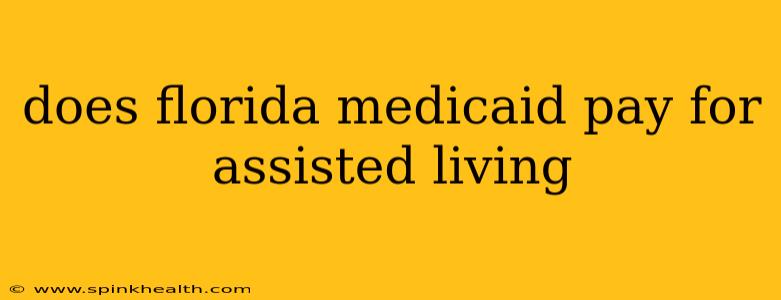Does Florida Medicaid Pay for Assisted Living? Navigating the Complexities of Long-Term Care
The question of whether Florida Medicaid covers assisted living is a common one, and the answer, unfortunately, isn't a simple yes or no. It's a winding path filled with eligibility requirements, specific programs, and a healthy dose of paperwork. Imagine this: you're facing a challenging decision about your aging parent's care, juggling emotions with the logistical nightmare of navigating the healthcare system. Let's unravel this together.
My name is Sarah, and I've spent years helping families navigate the complexities of long-term care in Florida. I've seen firsthand the confusion and frustration that surrounds Medicaid and assisted living. This post is designed to shed light on this intricate process, providing you with a clearer picture.
What is the Florida Medicaid program?
Florida Medicaid, like its counterparts in other states, is a government-funded program providing healthcare coverage to low-income individuals and families. However, its coverage for assisted living isn't a blanket acceptance. It's designed to primarily assist those with significant medical needs requiring a higher level of care than what's available at home. Think of it as a safety net for those who can't afford long-term care on their own.
Does Florida Medicaid directly pay for assisted living facilities?
No, not directly. Florida Medicaid doesn't issue checks to assisted living facilities. Instead, it utilizes a system involving Medicaid waivers, specifically the Long-Term Care Managed Care program (Managed Care) and the Statewide Medicaid Managed Care (SMMC). These waivers allow individuals who meet stringent eligibility requirements to access assisted living services through a network of approved providers. Think of it as a curated list of assisted living facilities that accept Medicaid payments.
What are the eligibility requirements for Medicaid assisted living in Florida?
Eligibility is where the complexity truly unfolds. It's not just about income; it's a multifaceted evaluation. You need to demonstrate both financial need and a medical necessity for assisted living.
Financial Need: This involves meeting strict income and asset limits. The limits can change, so it's crucial to consult the latest Florida Medicaid guidelines. This often involves complex calculations of your assets and income.
Medical Necessity: This is determined by a medical professional, typically a doctor or nurse. They assess your level of care needs. You'll need to demonstrate that you require a level of assistance exceeding what can be provided at home. This typically includes things like assistance with activities of daily living (ADLs) such as bathing, dressing, eating, and toileting.
What is the process of applying for Medicaid assisted living in Florida?
The application process can be quite daunting. It's a maze of forms, medical evaluations, and income documentation. It often involves working with case managers and navigating the bureaucratic processes. Many families find it helpful to enlist the assistance of a long-term care attorney or geriatric care manager to guide them through the process.
What are the alternatives to Medicaid for assisted living in Florida?
If you don't qualify for Medicaid, other options include:
- Private Pay: This involves covering the full cost of assisted living out of pocket.
- Long-Term Care Insurance: If you have a long-term care insurance policy, it might help cover some or all of the costs.
- Veterans Benefits: Veterans and their spouses may qualify for certain benefits that can assist with long-term care.
How can I find an assisted living facility that accepts Medicaid in Florida?
The Agency for Health Care Administration (AHCA) in Florida maintains a list of providers. You can usually find this information on their website. However, eligibility verification is crucial before selecting a facility; not every assisted living facility that accepts Medicaid will accept your Medicaid coverage.
What are the common misconceptions about Florida Medicaid and assisted living?
Many people mistakenly believe that simply having low income automatically qualifies them for Medicaid assisted living. This isn't true. Medical necessity is just as important as financial need. Another common misconception is that the process is simple and straightforward. It's not. It requires patience, persistence, and often professional guidance.
Navigating Florida's Medicaid system for assisted living is undoubtedly challenging. However, with careful planning, thorough understanding of the requirements, and potentially professional assistance, it's possible to access the support needed for your loved one's care. Remember, this information is for guidance only and should not replace consulting with professionals knowledgeable in Florida Medicaid and long-term care.

